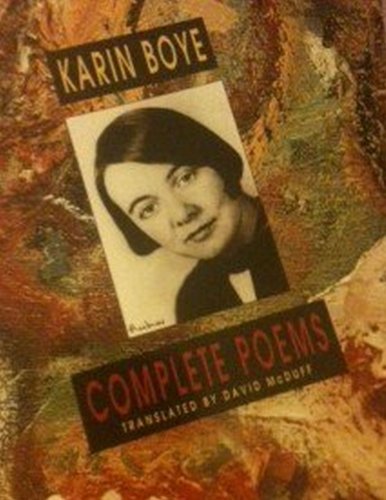A summary of what serving on SELTA’s committee entails.
What is SELTA?
Our constitution tells us that SELTA is an [unincorporated] association that is ‘called the Swedish-English Literary Translators’ Association’.
‘The Association shall be non-profit-making. Its objects shall be to promote the knowledge of Swedish and Finland-Swedish literature in Great Britain; to represent the interests of those involved in the translation of Swedish literature into English; to act as an information service and register of translators; to maintain contact with British, Swedish and Finland-Swedish publishers, and with cultural and literary organisations in Britain, Sweden and Finland. The Association may engage in any activities relevant to these aims.’
In terms of other activities that SELTA must undertake, this is the only other one:
‘An Annual General Meeting of the Association for all members shall be held each year to receive an audited account of its funds for the year ended 31 December preceding; to appoint an auditor for the following year; in alternate years to elect members of the Committee; and for any other competent business.’
Committee?
On the subject of the Committee, the constitution says: ‘The affairs of the Association shall be managed by a Committee consisting of: Chair, Secretary, Treasurer, Minutes Secretary and Web Editor. Up to two additional members may be co-opted by the Committee for special purposes. The Committee may additionally co-opt the Editor of Swedish Book Review.’
Tell me more about serving on the committee…
The committee’s work is not onerous, and can be a great way to give something back while getting to know the many wonderful people working in Swedish-English literary translation. As a whole, the committee works together (typically by email) to consider membership applications, set meeting dates and agendas, and drive the direction of the association as a whole. The committee tends to meet formally no more than twice a year (in connection either with real-life SELTA meetings or via Zoom). Committee members do not need to be based in the UK, but should be happy to get involved in ongoing work. Members without portfolio are welcome if they have fresh ideas and projects to pursue. A committee term only lasts 2 years, and there is no obligation to remain on the committee after serving a term.
What do the specified roles involve?
Each current committee member has submitted a few words on what their role involves. Of course, if you have any questions then don’t hesitate to get in touch with the relevant member to ask!
Chair
The role of Chair is to manage the activities of SELTA and to oversee the SELTA committee in its work. The Chair chairs meetings of the committee and meetings of the membership, ensuring that the association’s constitution is adhered to at all times. More widely, the Chair represents SELTA to external stakeholders (most notably the Swedish Embassy in London, the Swedish Literature Exchange and FILI, as well as others such as NorLit and the Translators Association), ensuring that the needs and wishes of SELTA and its members are met. The Chair is also responsible for directing the development of further projects, such as events and workshops. It is not a challenging job, but it requires patience, commitment and organisation, and it does occupy several hours a month of working time. It is a great way to engage with stakeholders in the industry and to get better acquainted with SELTA’s amazing members.
Secretary
The secretary’s main task is to monitor and respond to incoming queries, membership applications, and information for circulation to the membership. It’s not a particularly complicated or time-consuming role, and the chair as well as rest of the committee are always just an email away should you need advice. It doesn’t usually take more than half an hour a week, though it varies a lot – sometimes weeks go by without any action, sometimes a bunch of items need to be handled at once. Like the other committee roles, the secretary is also involved in general committee decisions, including approval of new members, etc. It is generally an enjoyable and easy job, especially so if you find emailing to be a fun break from other work. And it is a great way to give back and maintain a strong connection to the SELTA community, even if you live further afield and/or can’t attend every in-person meeting.
Treasurer
The job of the Treasurer is to keep an eye on SELTA’s accounts and make appropriate payments concerning members’ travel, workshops and other expenses. It never takes more than half an hour a week to keep on top of everything, including general committee decisions. The Treasurer receives and keeps track of members’ fees at the beginning of the year, and prepares the annual accounts for audit and presentation at the autumn AGM, which is no more than one day’s work. It is not a difficult job but you need to be organised and like spreadsheets. Overall it is a great way to stay up-to-date with everything going on in SELTA and give something back to the community without committing to a burdensome workload.
Minutes Secretary
As the name suggests, the Minutes Secretary’s job is to take the minutes at SELTA’s spring and autumn meetings. In practice this just means taking brief notes during the meetings and then writing them up afterwards. All in all it doesn’t take up much time, an hour or two a couple of times a year.
Web Editor
When the treasurer tells me that new members have paid, I add them to the list of members in a spreadsheet, add them to the Google Group and add them to the website. I then send them an email saying I have done this, enclosing instructions for adding their profile and adding publications, and asking if they give permission for their name and email to be added to the Members’ page on the website for other members to see and whether they want to be added to the Job Alerts list. I then do that if this is their wish. How often you have to do this depends on how many members we get a year but it isn’t loads. I have all the emails and the instructions saved and would hand them over! Of course you could write your own but you wouldn’t necessarily need to.
Otherwise the main job is writing News posts for the website and encouraging other people to do so when we hold events and then editing and uploading them. At the moment, because I am overworked and not currently on Twitter, the Chair tends to spot things that are happening and say “can you write a post on this award etc” but there is potential for a web person to take more initiative there. And it doesn’t come out as very many posts a year. More if people keep winning awards! You also need to upload minutes after the Spring Meeting and AGM once they have been approved and finalised.
When members add publications to the website, you are notified automatically and need to read them through, check there is text in all the right boxes and a cover image and then authorise them for publication and change the date to the right year if they are publications from the past. Sometimes you need to email the writer or provide help where people have got stuck but it is running pretty smoothly now. How often this happens depends on members and they can usually wait a couple of days or will email you if it’s more urgent.
There is also scope for editing the website text itself but as we only wrote it last year, it’s not necessary yet. I would provide a proper handover with website wrangling instructions and continue to be available for back-up and questions if they arise once I’ve left the job.










